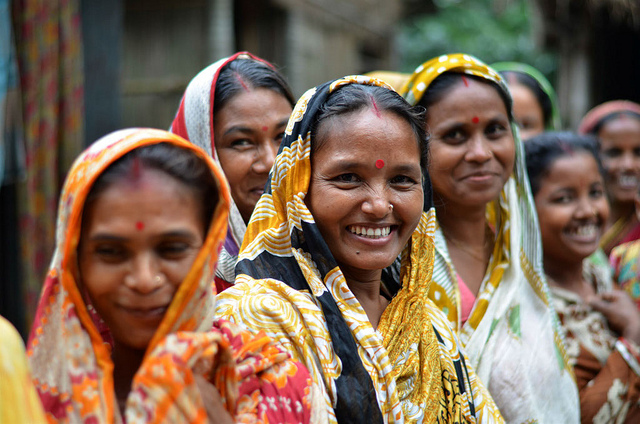This Saturday marks International Women’s Day. The theme this year is “equality for women is progress for all,” and IFPRI’s gender work is essential to its larger mission of achieving food and nutrition security for all and reducing poverty levels throughout the world.
Ensuring that food-related policies take women into account is a crucial step toward economic progress and agricultural growth in developing countries. According to the Food and Agriculture Organization of the United Nations (FAO), increasing productivity on female-headed farms by 20 to 30 percent would raise national productivity by 2.5 to 4 percent in developing countries, which, in turn, could end chronic hunger for as many as 100 to 150 million people.
For IFPRI, conducting research through a gender lens means that we consider how men and women in developing countries are involved in all stages of agricultural production, as well as how gender affects specific policies and programs meant to improve livelihoods.
Our work in gender is wide-ranging and far-reaching. The groundbreaking Women’s Empowerment in Agriculture Index (WEAI)is now in its second year, helping those who implement food and agriculture projects to monitor how these projects empower and include women. A forthcoming FAO and IFPRI book sets the record straight on long-entrenched misconceptions about women in agriculture and provides supporting materials for the FAO’s influential State of Food and Agriculture (SOFA) Report.
More recent IFPRI work on gender includes:
- A discussion paper by Cheryl Doss and colleagues on myths about gendered land ownership in Africa. If you think that only 2 percent of the world’s land is owned by women—a statistic that many organizations use—read this paper and think again!
- A series of discussion papers and project notes on gender and asset dynamics in Africa and South Asia, which come from the Gender, Agriculture, and Assets Project (GAAP). The projects assess a variety of programs, from homestead gardens in Burkina Faso to dairy value chains in Bangladesh and shed light on the nuances present in gender and asset interventions.
- The CGIAR Research Program on Agriculture for Nutrition and Health (A4NH), led by IFPRI, hosted a gathering of scientists and experts in nutrition, gender, monitoring and evaluation, and agricultural economics in Nairobi this past December. The attendees, representing 10 CGIAR research programs and their partners, established an evidence base for the role of gender in agriculture’s impact on nutrition, and shared tools and methodologies that will help them integrate gender into their research.
This is just a sampling of the ongoing work that IFPRI researchers do to improve the quality and quantity of data related to women, agriculture, and food security—and to get it in the hands of those who make policies and programs that directly affect women in developing countries. When decisionmakers have access to good quality data, they are able to create and implement gender-sensitive policies that really do lead for “progress for all.”
Related Materials







